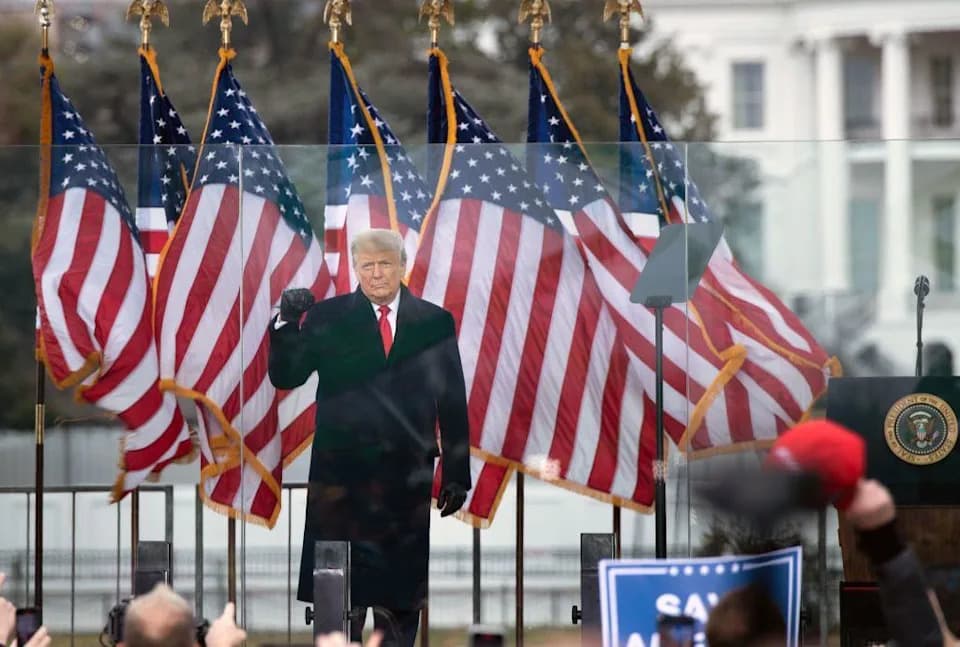BBC apologises after an edit in a Panorama episode made former President Donald Trump’s Jan. 6 remarks appear to be a single call for violence. The broadcaster says the edit was misleading but rejects a $1 billion defamation demand and intends to defend itself. The episode prompted the resignations of BBC News Director‑General Tim Davie and CEO Deborah Turness. Legal experts note U.K. defamation awards are typically modest and the likely deadline to sue has passed.
BBC Apologizes for Misleading Jan. 6 Edit of Trump Speech but Rejects $1B Defamation Demand; Top Executives Resign

BBC apologises for editing error but disputes legal claim
The BBC has issued a formal apology to former President Donald Trump for a misleading edit of his Jan. 6, 2021, remarks used in a Panorama episode, but it says the mistake does not amount to defamation.
The episode — titled "Trump: A Second Chance?" and broadcast days before the 2024 U.S. presidential election — included several clips of Mr. Trump spliced together out of sequence. That editing created the impression that Mr. Trump was making a single, continuous call for violent action. One clip showed him saying supporters should march with him and “fight like hell,” while other excerpts in which he urged peaceful demonstration were not included in the segment.
“We accept that our edit unintentionally created the impression that we were showing a single continuous section of the speech, rather than excerpts from different points in the speech, and that this gave the mistaken impression that President Trump had made a direct call for violent action.” — Samir Shah, BBC Chair
Trump’s attorney responded with a letter demanding a full retraction and threatening a $1 billion defamation suit, alleging the program contained “false, defamatory, disparaging, misleading or inflammatory statements.” In reply, the BBC said it “sincerely regrets the manner in which the video clip was edited,” but added it “strongly disagrees that there is a basis for a defamation claim” and said it would defend its position.
The controversy prompted senior departures at the corporation: BBC News Director‑General Tim Davie and BBC CEO Deborah Turness resigned. According to reports, Davie acknowledged the editorial error and told staff he both recognised the mistake and supported the BBC defending itself legally.
Legal context and related media settlements
Legal experts note practical limits on the threatened claim in the U.K.: defamation awards there are typically modest (the article cited that damages rarely exceed roughly $132,000) and the statutory window to bring such a case in this matter has reportedly expired. Whether a U.S.-style settlement or large award is realistic in this jurisdiction is therefore uncertain.
The BBC dispute follows several high‑profile settlements and agreements between Donald Trump and media companies in recent years. Reported examples include:
- A reported $16 million settlement with Paramount in July after litigation related to a 60 Minutes interview.
- ABC News agreeing to $15 million in charitable donations in December 2024 to resolve a libel claim tied to an incorrect on-air statement about a civil finding in the E. Jean Carroll case.
- Meta agreeing to pay $25 million in January 2025 to settle a 2021 lawsuit over Trump’s suspension from its platforms following the Jan. 6 Capitol events.
These earlier settlements took place in different legal and regulatory contexts than the BBC matter, and outcomes do not necessarily predict what will happen here.
What this means
The BBC has acknowledged an editorial failing and apologised for the way clips were edited, but it has not accepted that the edit amounts to legally actionable defamation. The incident has raised questions about editorial oversight at a major public broadcaster and the interplay between media practices, legal remedies and political fallout in high-stakes reporting.
Help us improve.




























